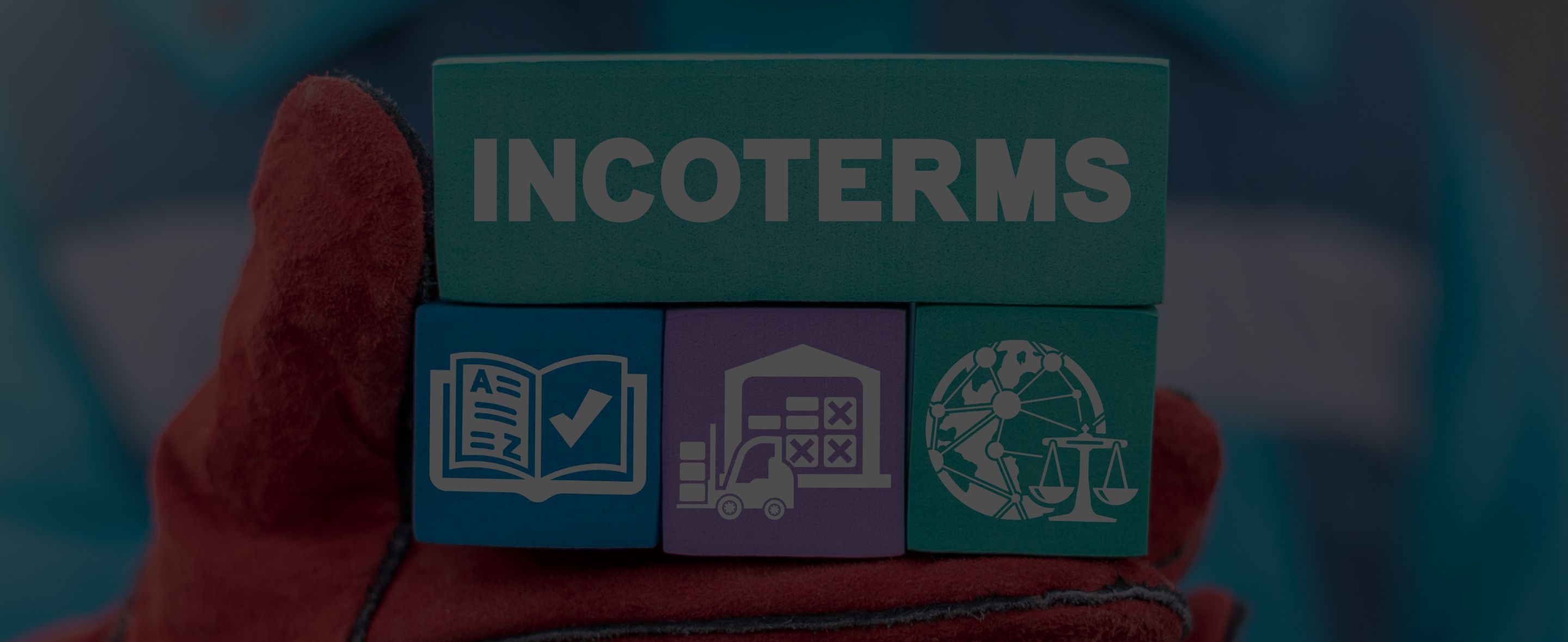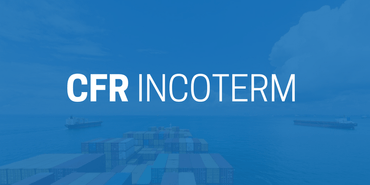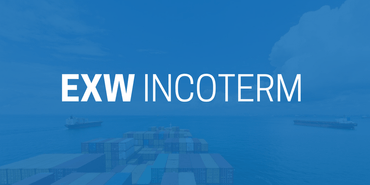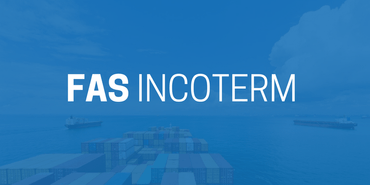
What are Incoterms?



![]()
What does Incoterms mean?
Incoterms, short for International Commercial Terms, are globally recognized rules created by the International Chamber of Commerce (ICC). They define the responsibilities of buyers and sellers in international trade, specifying who handles tasks like shipping, insurance, customs clearance, and risk management.
By using Incoterms, both parties can avoid confusion regarding costs and obligations, ensuring smoother transactions across borders.
Incoterms define who handles what in an international shipping agreement—everything from shipping and insurance to customs duties and risk transfer. The International Chamber of Commerce (ICC) created these globally recognized rules to prevent misunderstandings by providing a clear structure for buyers and sellers.
Here’s a breakdown of the four Incoterm groups.
How are Incoterms grouped?
Incoterms Group C
Condition: The seller bears all costs to the destination port (including international transport) however, risk transfer will be made once the goods are loaded on the means of transport.
Incoterms Group D
Condition: The seller bears all risks and costs necessary to bring the goods to the destination country.
Incoterms Group E
Condition: The buyer is responsible for collecting the goods at the seller’s warehouse and bears all associated risk and cost.
Incoterms Group F
Condition: The seller is responsible for bringing the goods to the buyer’s predefined transport medium; the buyer then accepts cost and risk responsibility from that point onwards.
These are sorted into four different groups, C, D, E, and F, which are categorized according to the delivery location of the goods and the responsibility for payment at different stages of the international transport.
To find out more about what each Incoterm entails, we recommend you to give our page on Incoterms meanings a read.
What are the types of Incoterms? What are the 11 Incoterms?
Incoterms are divided into two categories based on transport mode, each defining responsibilities and cost distribution.
For Any Mode of Transport:
- EXW (Ex Works) – Buyer handles all logistics from the seller's premises.
- FCA (Free Carrier) – Seller delivers goods to a carrier chosen by the buyer.
- CPT (Carriage Paid To) – Seller pays for transport to a named destination, but risk transfers earlier.
- CIP (Carriage and Insurance Paid To) – Similar to CPT, but the seller must provide insurance.
- DAP (Delivered at Place) – Seller delivers goods to a named place, excluding unloading.
- DPU (Delivered at Place Unloaded) – Seller delivers and unloads goods at the named destination.
- DDP (Delivered Duty Paid) – Seller takes full responsibility, including import duties and taxes.
For Sea and Inland Waterway Transport:
- FAS (Free Alongside Ship) – Seller delivers goods alongside the vessel.
- FOB (Free on Board) – Risk transfers when goods are loaded onto the ship.
- CFR (Cost and Freight) – Seller pays for transport to the destination port; risk transfers at loading.
- CIF (Cost, Insurance, and Freight) – Similar to CFR, but the seller also provides insurance.
Understanding these terms helps you choose the proper agreement for your business needs.
What is the purpose of Incoterms?
Incoterms simplify international shipping agreements by clearly defining the following:
- Who handles costs like shipping and insurance
- When risk transfers from the seller to the buyer
- Who takes care of customs duties and other formalities
By using Incoterms, you minimize the risk of disputes and ensure both parties know their roles.
Who needs to use Incoterms?
Anyone involved in international shipping should use Incoterms, especially:
- Businesses importing or exporting goods
- Logistics managers and freight forwarders
- Customs brokers and insurance providers
For SMEs new to global trade, Incoterms provides a clear framework for managing responsibilities and costs, helping them avoid confusion and delays.
How are Incoterms selected?
Choosing the right Incoterm depends on your shipping strategy. Consider:
- Mode of transport – Some terms apply only to sea freight, while others work for any method.
- Responsibility sharing – Decide how much of the shipping process you want to handle versus outsource.
- Customs and regulations – Some countries have specific requirements that may affect your choice.
Discussing these factors with your trade partner early on can prevent costly misunderstandings later.
Which Incoterms are suitable for different modes of transport?
Some Incoterms apply to all transport types, while others are designed specifically for sea freight.
For all transport modes:
- EXW, FCA, CPT, CIP, DAP, DPU, DDP
For sea and inland waterway transport:
- FAS, FOB, CFR, CIF
If you're unsure, consult a freight forwarder to help you select the right Incoterm for your shipping method.
What happens if the wrong Incoterm is chosen?
Selecting the wrong Incoterm can lead to:
- Unexpected costs – You may end up paying for services you didn’t budget for.
- Disputes – Unclear responsibilities can cause confusion and delays.
- Customs complications – Incorrect documentation or risk assignments may hold up your shipment.
To avoid these issues, ensure both parties fully understand the Incoterm and its implications.
How do Incoterms affect transportation insurance?
Incoterms dictate who arranges and pays for insurance.
- CIP and CIF require the seller to provide insurance.
- For most other Incoterms, the buyer assumes responsibility for insurance.
Understanding these terms protects your goods, reducing the risk of costly losses during transit.
Why are Incoterms updated?
The ICC periodically updates Incoterms to reflect changes in global trade practices. Updates address:
- New transportation methods and technology
- Shifts in customs and security regulations
- Current trends in risk management
The most recent version, Incoterms 2024, helps businesses stay aligned with modern trade requirements, ensuring your contracts remain relevant and compliant.
If you have more questions about choosing the right Incoterm, you may contact our team of specialists.
- 1. What does Incoterms mean?
- 2. How are Incoterms grouped?Incoterms Group CIncoterms Group DIncoterms Group EIncoterms Group F
- 3. What are the types of Incoterms? What are the 11 Incoterms?
- 4. What is the purpose of Incoterms?
- 5. Who needs to use Incoterms?
- 6. How are Incoterms selected?
- 7. Which Incoterms are suitable for different modes of transport?
- 8. What happens if the wrong Incoterm is chosen?
- 9. How do Incoterms affect transportation insurance?
- 10. Why are Incoterms updated?
Related Articles


